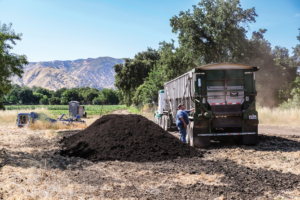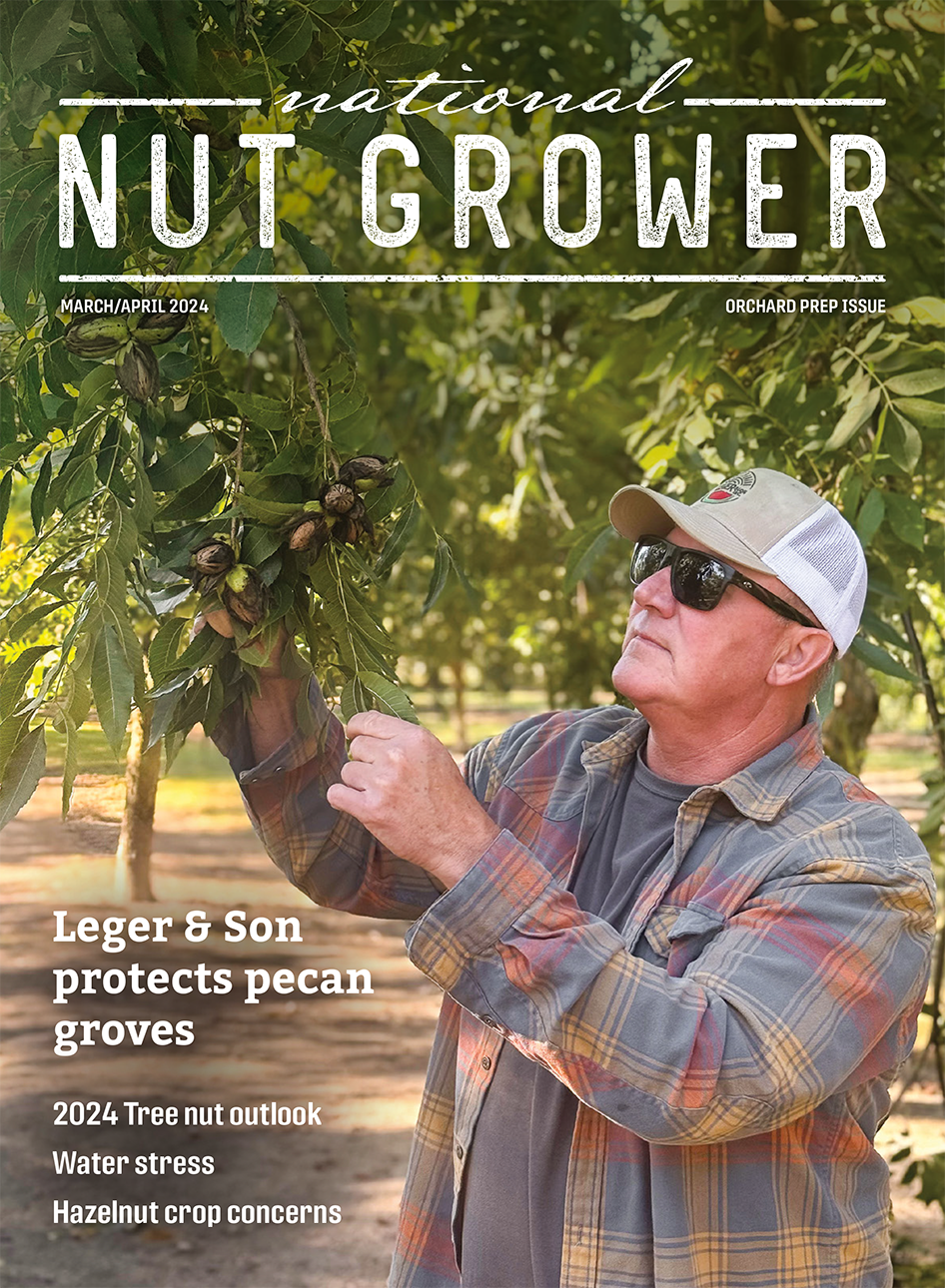
Jun 27, 2023Diesel ending worries California compost dealers
Daniel Pacheco, owner-operator of Lucky Diamond Trucking in Sonoma County, recently picked up a 24-ton order from Cold Creek Compost in Ukiah and hauled it two hours through Mendocino, Lake and Yolo counties before dumping the load near a corn field at Full Belly Farm in Yolo County.
The long trek was a routine journey. But new trucking rules may make such deliveries harder in the future, with major impacts for agriculture.
Compost is essential to organic farming, which is built on the “foundation that you’re working with biological processes rather than chemical processes,” said Paul Muller, a partner of Full Belly Farm, which grows organic nuts, fruits, grains and vegetables.

In place of conventional fertilizers, the nutrient-rich material, typically made of decomposed food waste, manure and other organic matter, is used to improve soil ecology and stimulate plant growth.
“We rely on it,” said Javier Zamora, owner of JSM Organics in Monterey County.
In addition to benefiting farms, compost is central to efforts by California lawmakers to combat climate change. It plays a role in the state’s goal to divert 75% of organic waste away from landfills, and in the Healthy Soils Program, which helps subsidize farming practices that sequester carbon in the ground, including composting.
But compost suppliers say they worry a separate climate-focused policy could make it harder for some farms to afford compost deliveries. In April, the California Air Resources Board approved a landmark rule banning the sale of new diesel trucks by 2036 and requiring most trucks operating in the state be zero-emission vehicles by 2042.
“This is an absolutely transformative rule to clean our air and mitigate climate change,” said CARB Chair Liane Randolph. “We all know there’s a lot of challenges, but those challenges aren’t going to be tackled unless we move forward.”
Farm and trucking groups have cautioned that insufficient charging infrastructure for electric trucks could leave fresh produce or livestock stranded in rural areas. As the diesel phaseout approaches, agricultural supply companies are also raising concerns.
Clayton Lynch, sales and marketing representative for Agra Marketing, a Butte County company that ships bioproducts such as compost and manure to farms across the state, said he believes the limited carrying capacity of electric trucks will drive up the cost of these inexpensive but heavy materials, impacting agriculture and especially organic farms.
“The value of the products themselves is very low, so the predominant cost is associated with transportation,” Lynch said.
 Batteries for electric heavy-duty trucks can weigh up to 16,000 pounds. Due to federal restrictions on how much a rig can weigh, the battery could reduce what a truck can haul by around a third, requiring more trips to move the same freight.
Batteries for electric heavy-duty trucks can weigh up to 16,000 pounds. Due to federal restrictions on how much a rig can weigh, the battery could reduce what a truck can haul by around a third, requiring more trips to move the same freight.
“It would raise the cost exponentially for all of these products that a lot of people who are environmentally conscientious are usually very excited to utilize,” Lynch said. “It’s a huge concern.”
In multiple sectors that serve organic farms, questions linger about who will bear the financial burden of eliminating diesel.
California has budgeted more than $5 billion for the transition to cleaner trucks and buses. With 2,000 zero-emission medium-duty and heavy-duty vehicles on California roads this year and the rule expected to impact 1.8 million vehicles, much of that transition lies ahead.
“In several years, you’re going to have a hard time finding trucking companies, except the big ones” said Al Lopez, owner of Lopez Ag Service in Sacramento County, which supplies compost to farms in the region.







